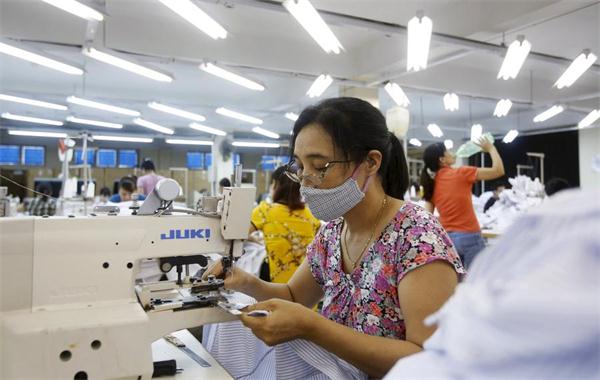 |
|
Labourers work at a garment factory in Sai Dong, outside Hanoi, Vietnam. [Photo/Agencies] |
At a critical moment when trade is set to grow less than the global economy for the first time in the last four decades, there is no reason not to welcome the ambitious pact that 12 Pacific Rim countries reached on Monday to create the largest free trade area of the world.
That is why China's Ministry of Commerce said on Tuesday that the Trans-Pacific Partnership is one of the key free trade agreements for the region and China is open to any mechanism that follows the rules of the World Trade Organization and can boost the economic integration of the Asia-Pacific.
As a top global trading power that has hugely contributed to and benefited from the global trade growth for the last two decades, China sincerely hopes the TPP pact and other free trade arrangements in the region can strengthen each other and boost trade, investment and economic growth in the Asia-Pacific, to benefit not just the region but also the rest of the world.
It is also the common wish of the international community that, as a long-term driving force, the current slow pace of global trade growth should be revived through deeper and wider reforms of the international trade system to fuel a sustainable global recovery from the 2008 financial crisis.
The appealing promise that the TPP may reshape industries and liberalize commerce in 40 percent of the world's economy has understandably given rise to praise such as the "most ambitious trade pact in a generation".
Yet the real implications of the TPP deal are far from clear since it has been largely negotiated under a blanket of secrecy to facilitate give-and-take among the signatories.
The power of a successful trade deal is to maximize as much as possible each participant's comparative advantages in global trade while minimizing predictable political opposition from various domestic vested interests.
Nevertheless, even before the five-year marathon talks have secured a really workable arrangement, US President Barack Obama hastened to paint the pact as a way of stopping China from writing the rules of the global economy in an illusion that he may easily win over the domestic political support he expects.
However, if the deal is based on the political priority of one partner, rather than the shared benefit of all partners, it would be hard to believe that it can ensure free market trade as it is being touted.
The world needs a trade-boosting deal. The United States has a huge onus to prove the merits of the TPP.